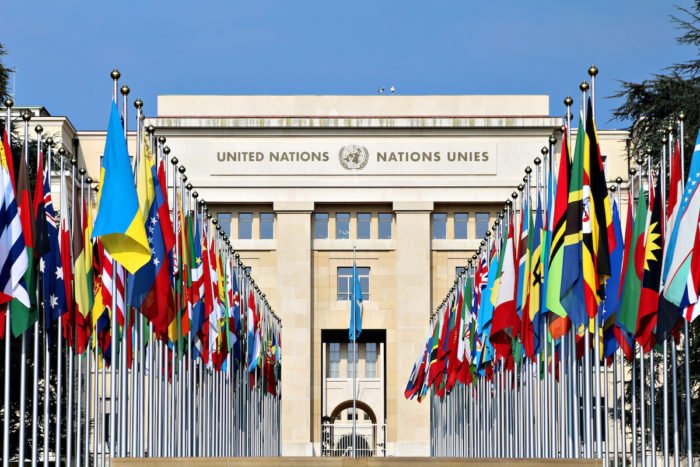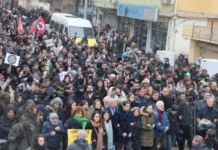The United Nations Committee Against Torture (CAT) has concluded its consideration of Turkey’s fifth periodic report, highlighting significant concerns regarding the country’s adherence to human rights and legal standards, on issues ranging from the permanence of state of emergency laws to the treatment of detainees and the independence of the judiciary.
The committee raised alarm over reports that emergency decrees enacted following a 2016 coup attempt have become a permanent part of Turkish law. These laws allow extended periods of detention, significantly exceeding international standards, with some detentions extending up to 36 days for those suspected of “collectively committing crimes.”
Following the coup attempt, the Turkish government declared a state of emergency and carried out a massive purge of state institutions under the pretext of an anti-coup fight. More than 130,000 civil servants, including 4,156 judges and prosecutors, as well as 24,706 members of the armed forces were summarily removed from their jobs for alleged membership in or relationships with “terrorist organizations” by emergency decree-laws subject to neither judicial nor parliamentary scrutiny.
Deficiencies in Turkey’s legal framework regarding torture and ill-treatment were also detailed. While the Turkish Constitution addresses torture, other offenses are inadequately covered. Concerns were raised about the absence of explicit prohibitions against confessions obtained under torture within the Turkish Penal Code, and questions about whether protections extend sufficiently to witnesses.
Questions about the independence and accountability of Turkey’s judiciary were central to the critique. The committee questioned the role of the Board of Judges and Prosecutors (HSK) in controlling judicial careers and cited instances of judges and lawyers being imprisoned, particularly following the coup attempt. The case of Aydın Sefa Akay, a former UN judge imprisoned despite appeals based on his diplomatic immunity, was notably mentioned.
Concerns about Law No. 6722, passed in 2016, were addressed. This law introduces a special permission procedure for investigating military personnel accused of torture and ill-treatment, effectively providing a retroactive shield of impunity. The committee asked Turkey to clarify its policy and measures to combat impunity and ensure accountability for military and quasi-military personnel.
The committee pointed out illegal renditions and the extradition of Turkish citizens affiliated with the faith-based Gülen movement under counterterrorism measures. These cases often involved torture and incommunicado detention, amounting to enforced disappearance. The committee expressed concern that these actions, carried out by the intelligence service, often resulted in impunity due to Article 6 of Law No. 6532, which grants de facto impunity to agents of the National Intelligence Organization (MİT).
Turkish President Recep Tayyip Erdoğan has been targeting followers of the Gülen movement, inspired by Muslim cleric Fethullah Gülen since the corruption investigations of 2013, which implicated then-prime minister Erdoğan, his family members and his inner circle.
Dismissing the investigations as a Gülenist coup and conspiracy against his government, Erdoğan designated the movement as a terrorist organization and began to target its members. He intensified the crackdown on the movement following the abortive putsch in July 2016 that he accused Gülen of masterminding. Gülen and the movement strongly deny involvement in the coup attempt or any terrorist activity.
Conditions in Turkish detention facilities were criticized, in particular overcrowding, limited access to legal and medical services and restricted family contact for detainees. The committee called for better treatment of women and juveniles in detention and questioned the conditions under which life imprisonment sentences are served.
The committee noted reports indicating that the number of prisoners sentenced to life had increased by 40 percent between 2016 and 2022. The committee asked Turkey to provide an explanation for these figures.
The closure of over 34 lawyers’ associations and numerous media outlets by presidential decree raised serious concerns about freedom of expression and association in Turkey. The committee urged the Turkish government to ensure that journalists and human rights defenders can work without fear of reprisal.
Despite Turkey’s legal framework to combat violence against women, persistent issues such as femicide and forced suicides remain. The committee expressed concern over Turkey’s withdrawal from the Istanbul Convention, viewing it as a setback for women’s rights and protection against gender-based violence.
While Turkey is commended for hosting the largest number of refugees globally, the committee highlighted issues such as low birth registration rates among refugee children and rising xenophobia. The need for better integration and protection measures was emphasized.
The committee called on Turkey to update its statistics, enhance training programs for law enforcement and ensure compliance with international human rights standards.















